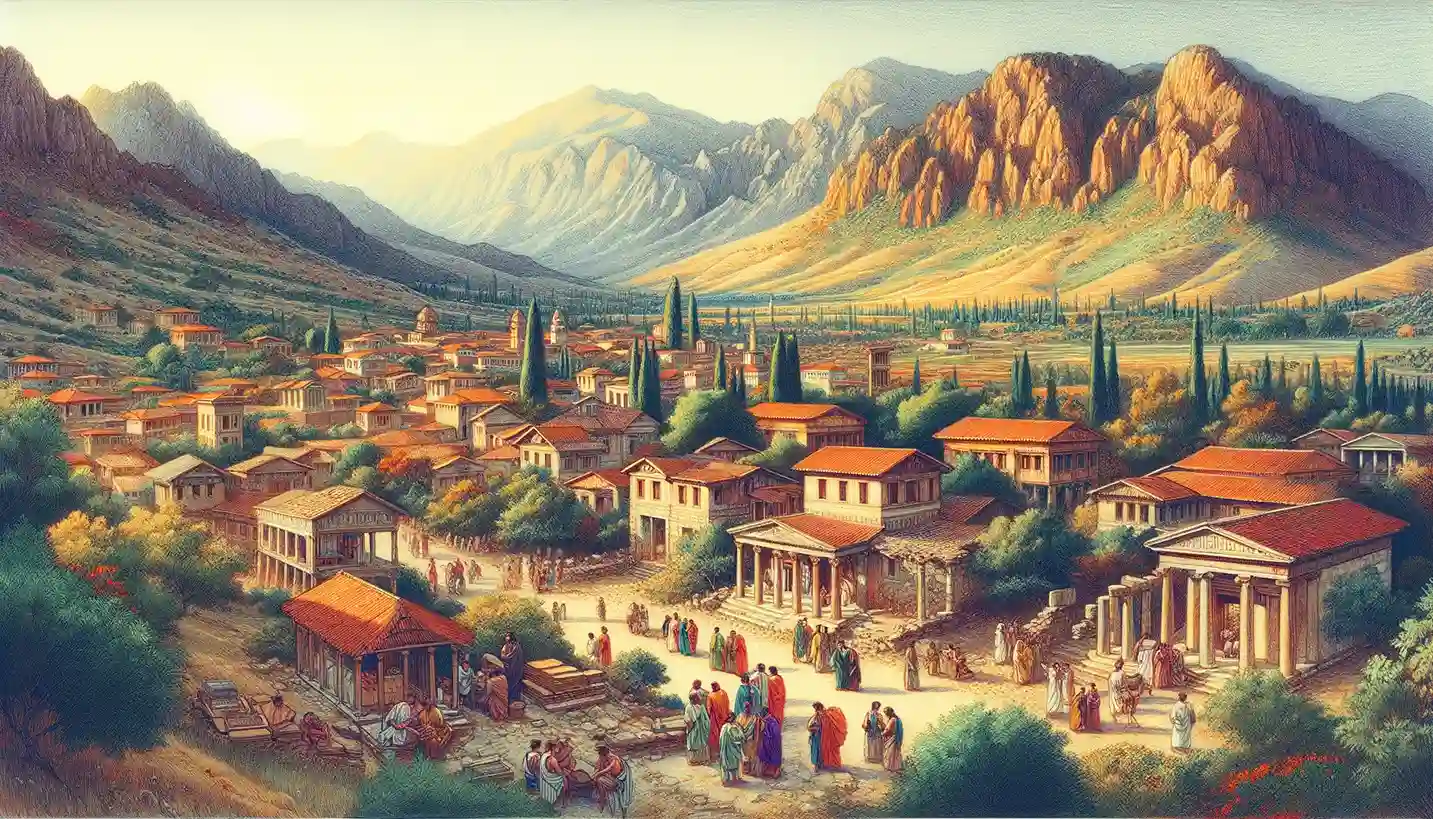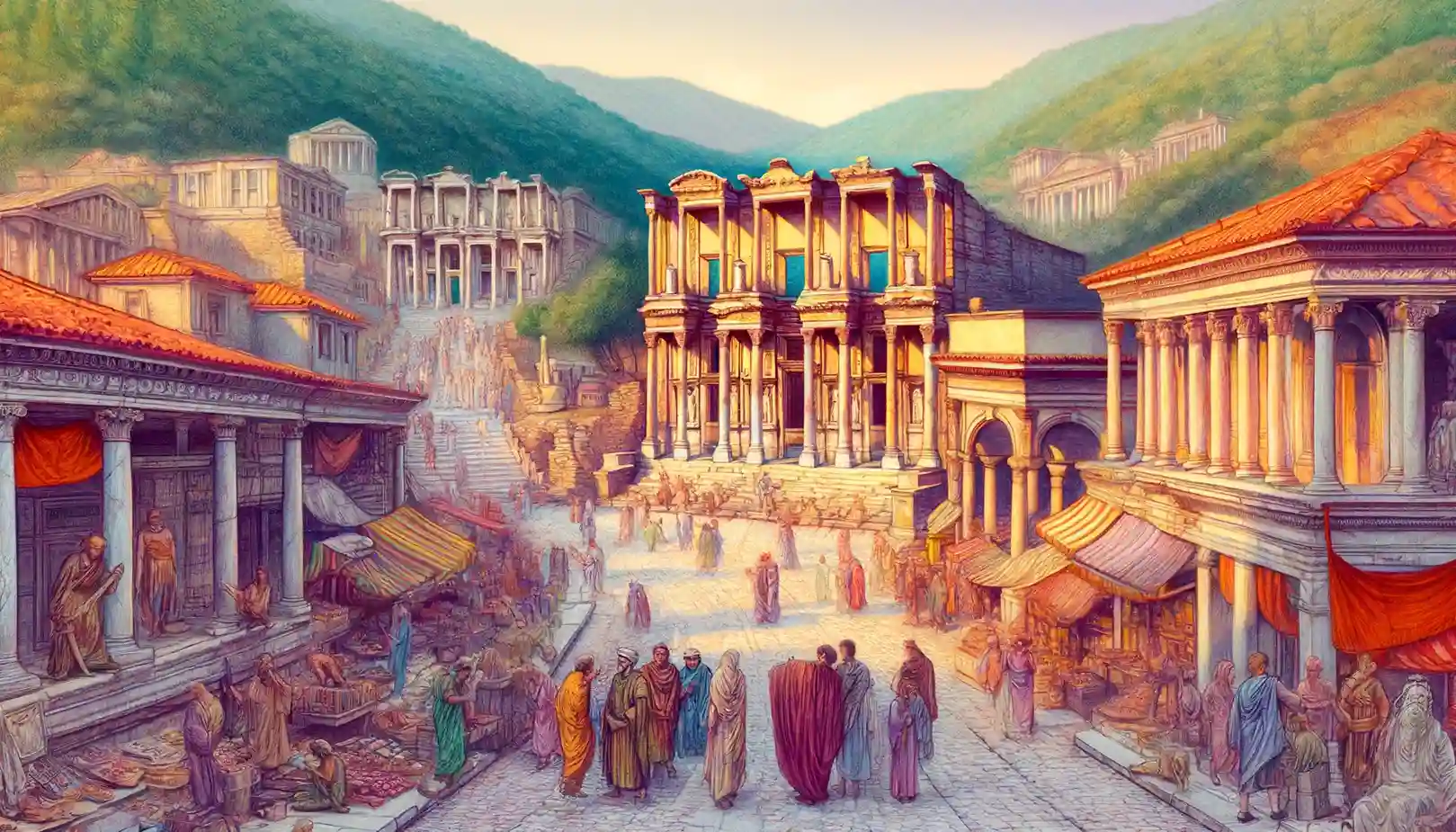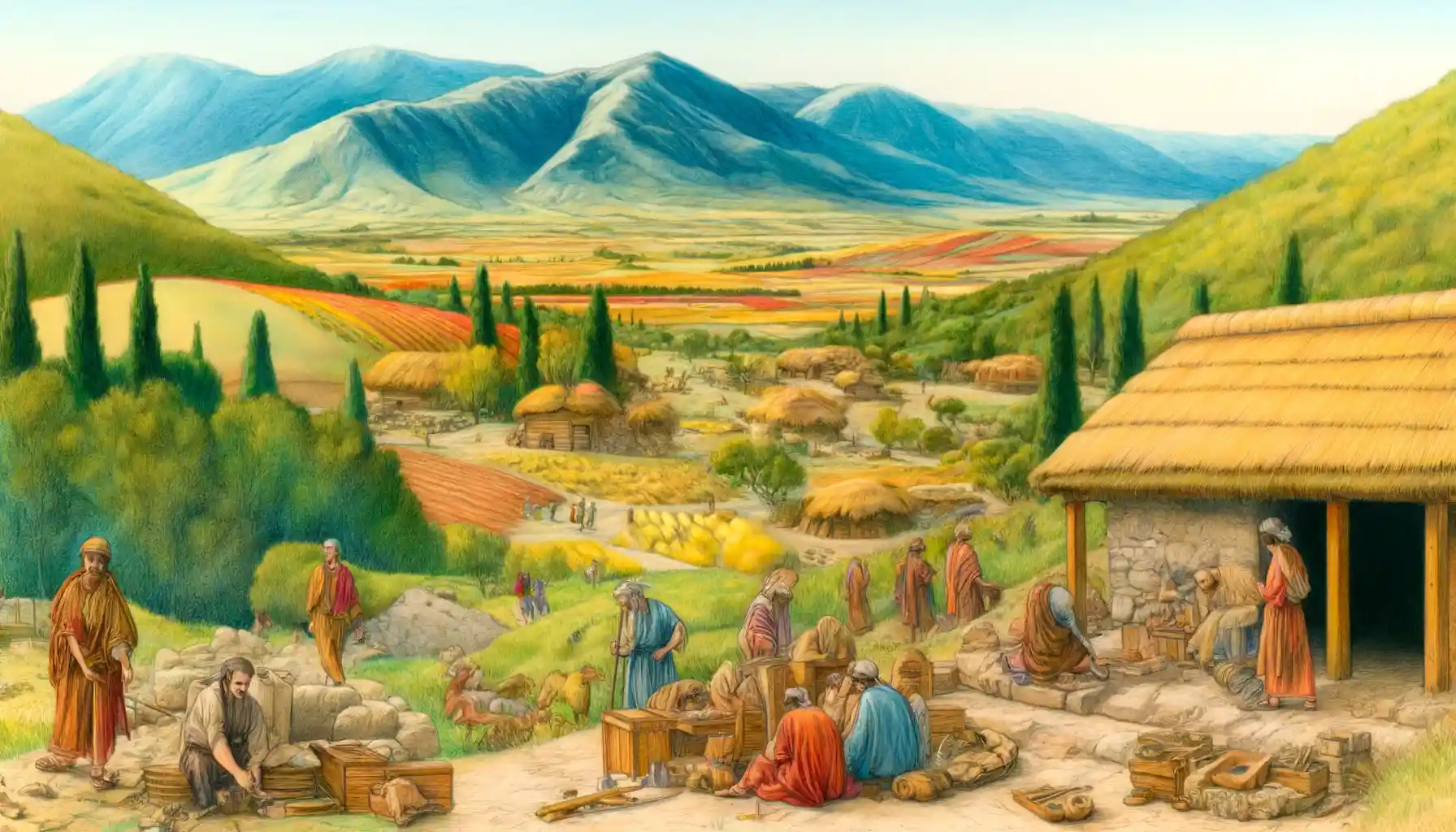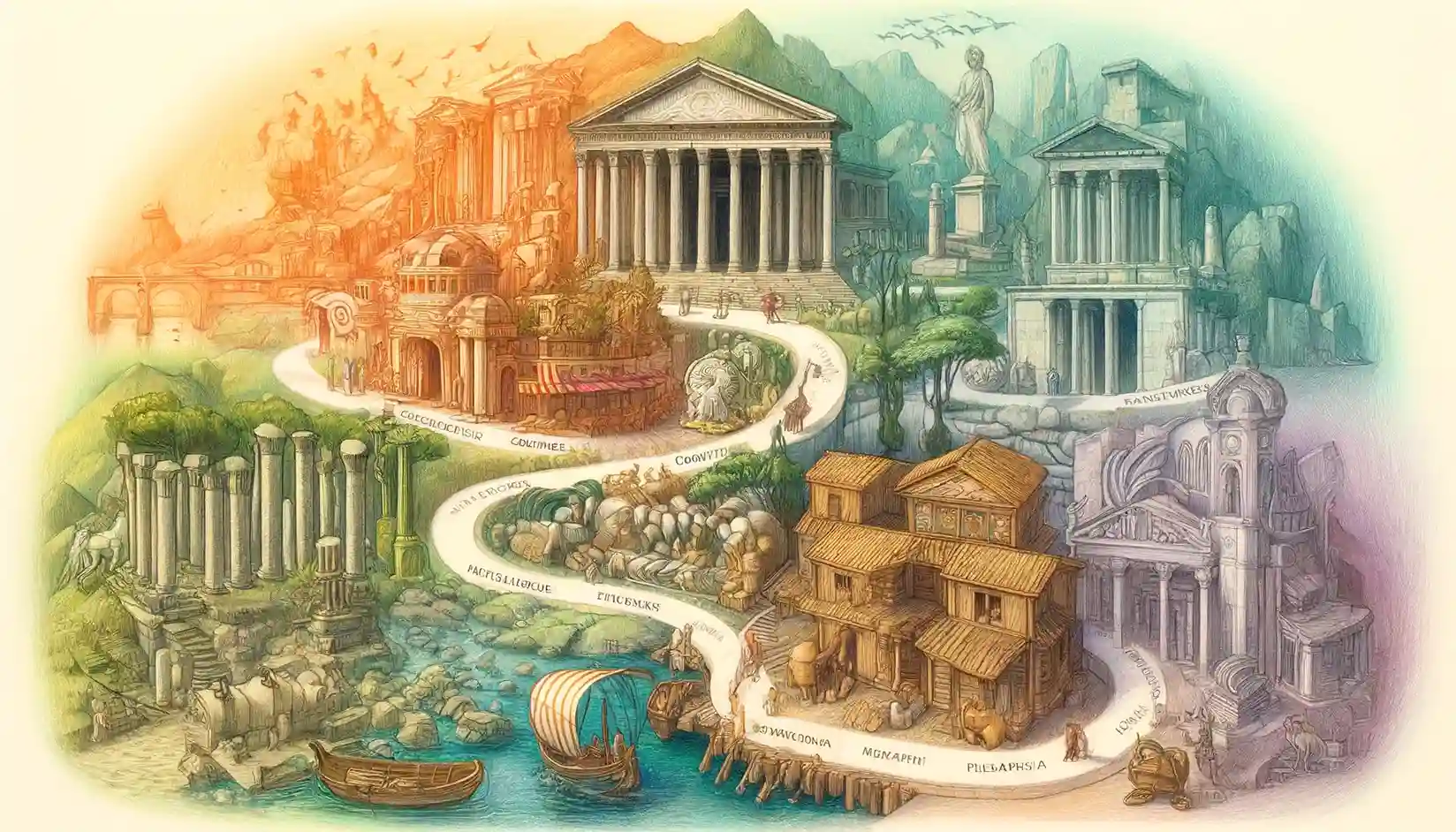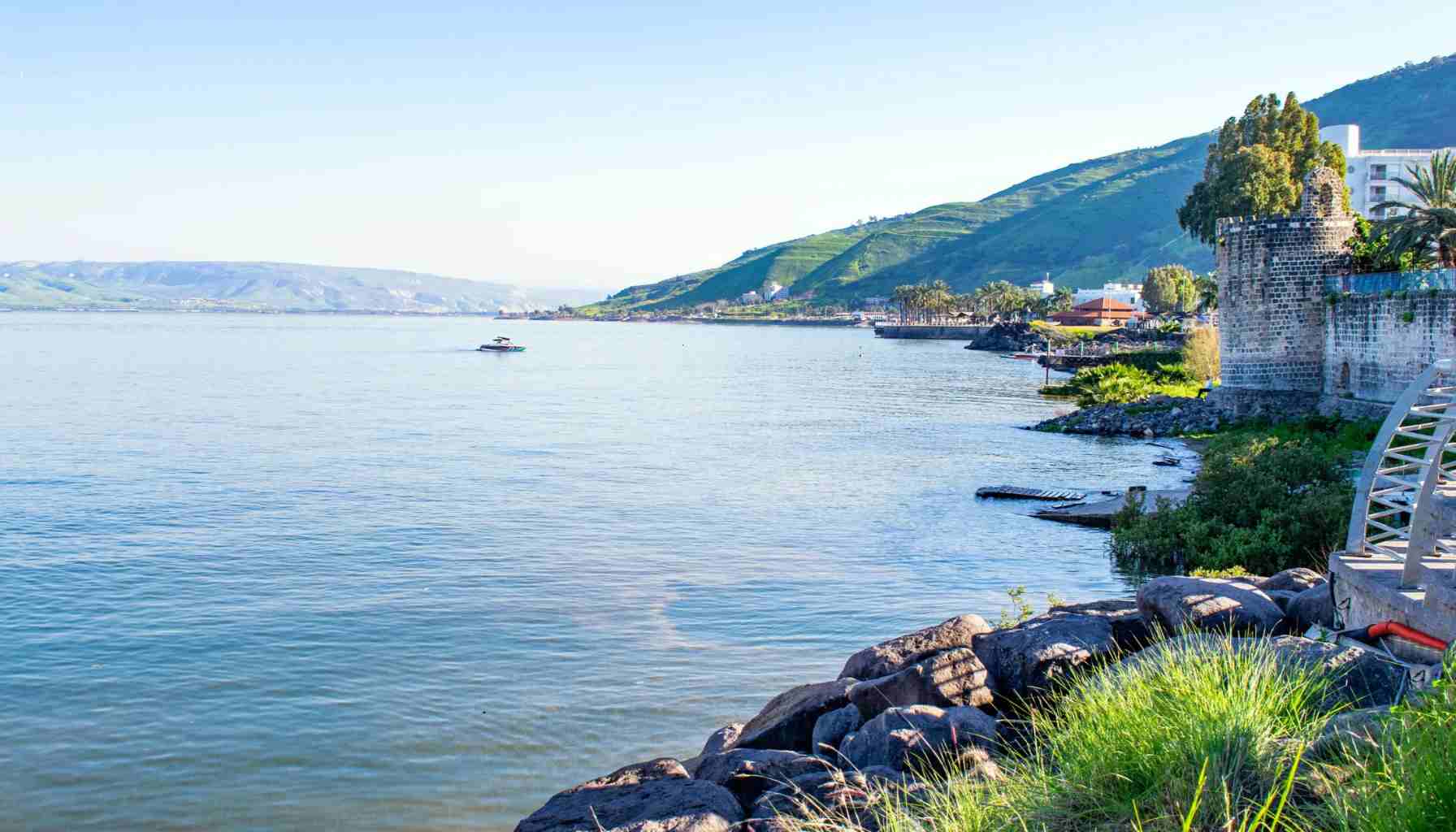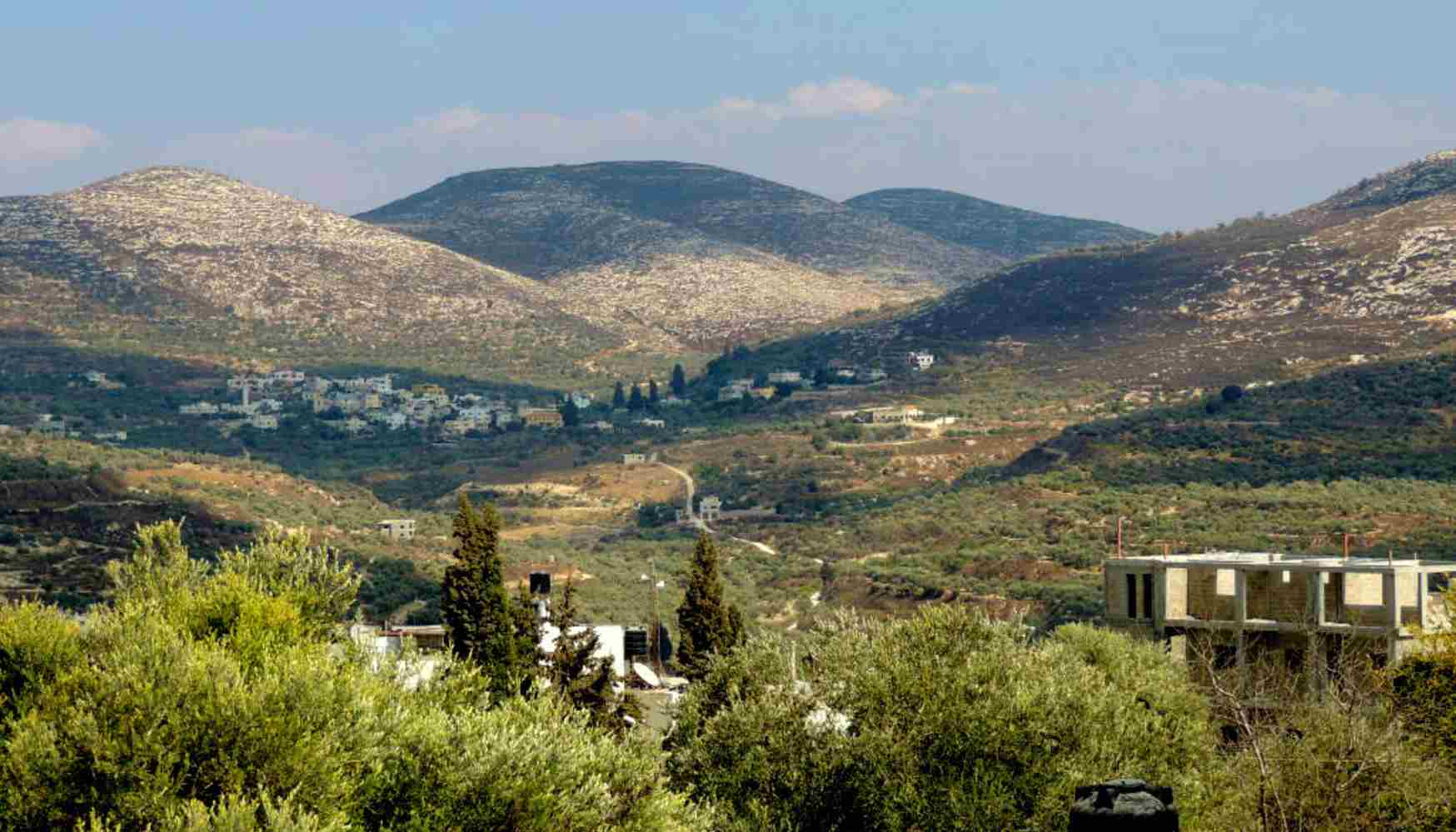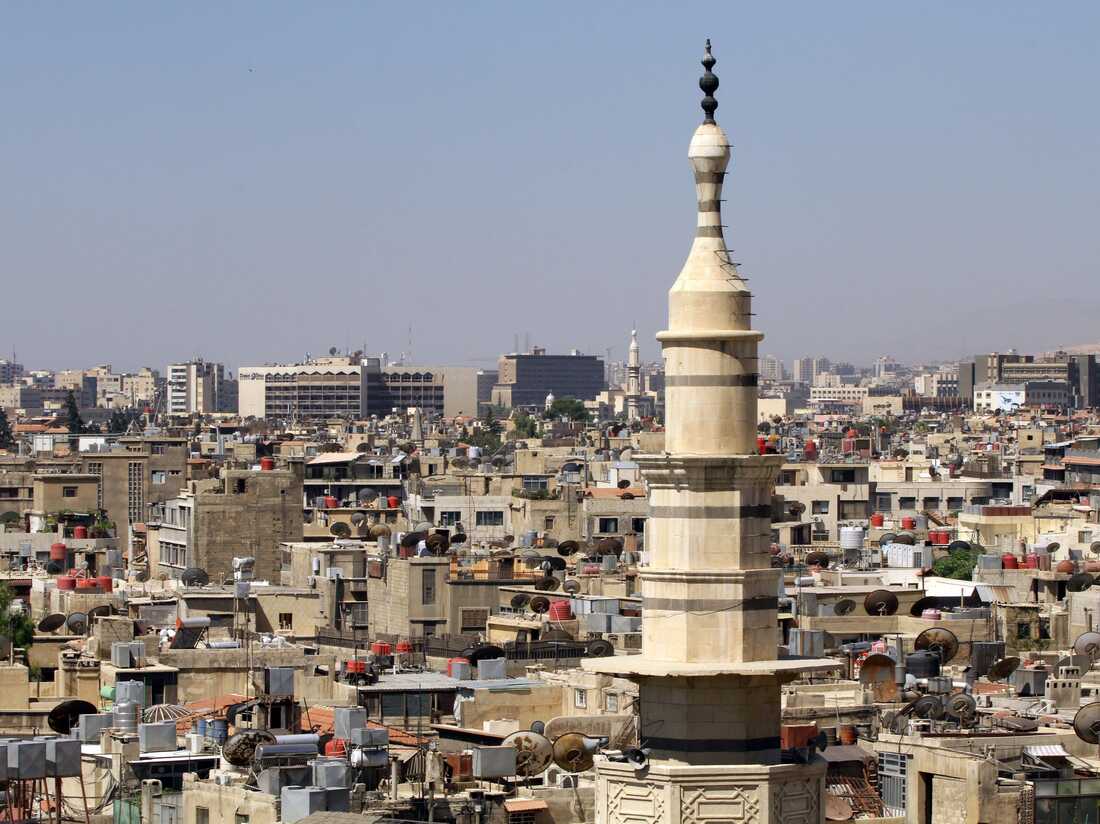Colossae, an ancient city in Phrygia, is primarily known through the New Testament’s Epistle to the Colossians, where Apostle Paul addresses the early Christian community’s challenges with local heretical teachings and emphasizes the supremacy and sufficiency of Christ.
Philippi, an ancient city in Macedonia, is historically significant as the site of the first Christian community in Europe, founded by Apostle Paul, and is celebrated for its profound biblical connections and rich archaeological heritage.
Ephesus, an ancient city located in modern-day Turkey, was a significant center for early Christianity, known for its robust Christian community, the ministry of the Apostle Paul, and as the site of the Temple of Artemis, one of the Seven Wonders of the Ancient World.
Galatia, an ancient region in modern-day Turkey, was historically significant for its early Christian communities established by Apostle Paul, who addressed them in his Epistle to the Galatians, emphasizing crucial theological concepts such as justification by faith and Christian liberty amidst cultural and doctrinal challenges.
Rome, the capital of the Roman Empire, holds significant importance in biblical history, particularly in the New Testament, where it is depicted as a key center for early Christian activity involving pivotal figures such as the Apostles Paul and Peter, and played a crucial role in the spread of Christianity through its infrastructure and influence.
Paul’s epistles to various communities such as Rome, Corinth, Galatia, Ephesus, Philippi, Colossae, and Thessalonica address local issues and broader theological themes, shaping the foundational doctrines and practices of early Christianity.
The Sea of Galilee, also known as Lake Kinneret, holds profound historical, theological, and ecological significance, serving as a pivotal setting for Jesus’ ministry in the New Testament, supporting local economies through its fishing and tourism industries, and facing contemporary challenges related to water management and ecological sustainability.
Samaria’s historical journey is detailed and profound, beginning with its founding as the capital of the Northern Kingdom of Israel. It also plays a significant role in biblical stories. Today, it stands as a modern geopolitical flashpoint. This highlights a significant evolution in geographic, cultural, and theological aspects, continuing to impact current discussions and religious reflections.
Damascus, a city steeped in both historical and biblical significance, serves as a pivotal setting in the Scriptures, featuring prominently from the Old Testament’s accounts of Aramean conflicts to the New Testament’s transformative tale of Saul’s conversion on the road to Damascus, encapsulating themes of judgment, mercy, and profound spiritual renewal.
The places Jesus visited across His earthly ministry, from His humble birth in Bethlehem to His profound teachings in Capernaum and transformative moments on the Mount of Olives, collectively highlight the geographic and cultural context of His teachings, the fulfillment of prophecies, and the profound impact of His life and miracles on diverse communities and individuals.

